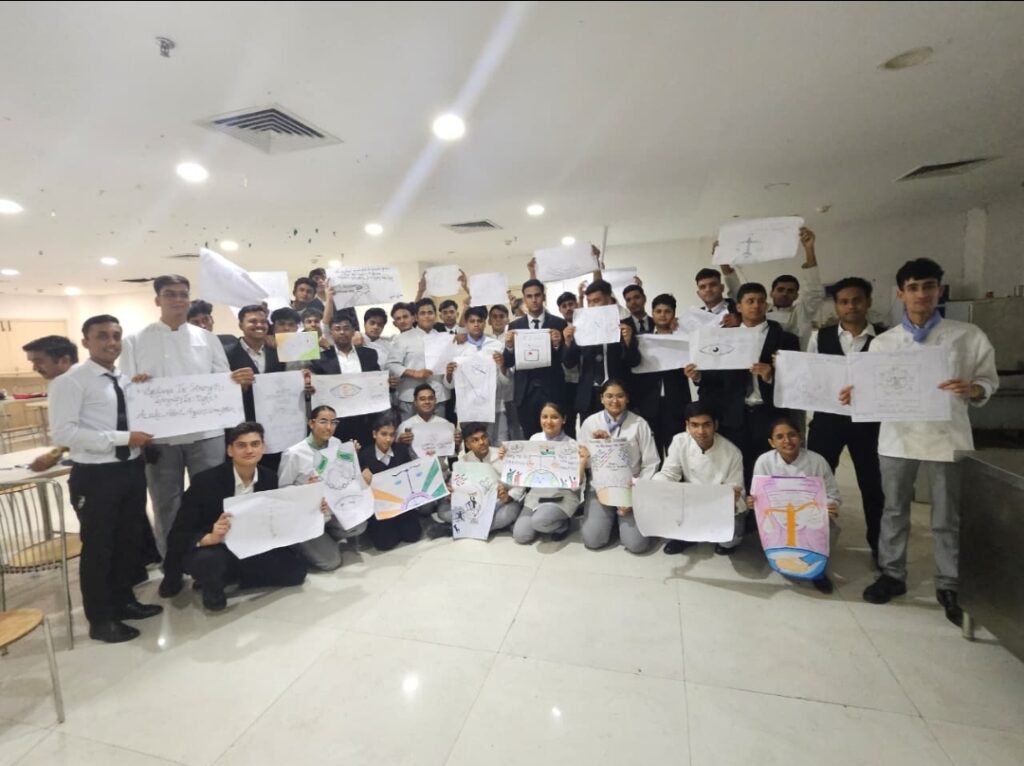Vigilance and Integrity: Cornerstones of Exceptional Customer and Employee Experiences
In the real world, businesses often face challenges that threaten both customer experience (CX) and employee experience (EX). Integrity lapses, lack of transparency, and ethical governance issues can erode trust and damage brand reputation. For companies operating in service-intensive sectors like tourism and hospitality, these challenges multiply. The question CX and EX professionals grapple with is: How do we embed a culture of vigilance and accountability that naturally elevates experiences for both customers and employees?
A recent example worth examining is the India Tourism Development Corporation’s (ITDC) observance of Vigilance Awareness Week 2025. ITDC, a public sector undertaking under India’s Ministry of Tourism, implemented a robust program from October 27 to November 2 focused on the theme “Vigilance: Our Shared Responsibility.” This initiative highlights practical ways an organization can embed vigilance as a shared cultural value driving transparent and ethical operations.
Real-World Challenges in Customer and Employee Experience
Customer trust depends immensely on ethical business conduct and transparent practices. When organizations face integrity issues—fraud, corruption, or unaddressed complaints—customer confidence dips. For employees, working in an environment lacking ethical governance breeds disengagement, bureaucracy, and operational inefficiencies. Disengaged employees often deliver subpar customer experiences.
ITDC’s ecosystem stretches across corporate offices, hotels, travel and tour units, and hospitality education. Their challenge? Uniting diverse functions under a single culture of vigilance and integrity while ensuring employees act as frontline ambassadors of transparency.
Ms. Mugdha Sinha, IAS, Managing Director of ITDC, aptly summarized the foundation of customer and employee experience in the tourism and hospitality sector:
“The Tourism and Hospitality – or any other industry – rests on the foundation of ethical conduct.”
This statement underscores a universal truth in CX/EX management—ethical conduct and integrity are non-negotiable pillars supporting sustainable experiences.
In-Depth Analysis: Building a Vigilant Culture in CX and EX
Vigilance as a Shared Organizational Responsibility
ITDC’s Vigilance Awareness Week exemplifies how organizations can promote vigilance as an inclusive, collective responsibility. Activities such as integrity pledges, interactive workshops, contests, and community engagement demonstrate that vigilance is not just a compliance exercise but an empowered movement towards shared accountability.
The involvement of students from ITDC’s Ashok Institute of Hospitality & Tourism Management (AIHTM) in poster making, slogan writing, debates, and quizzes ensured a fresh, future-focused infusion of vigilance values. This educational outreach enhances employees’ and upcoming professionals’ ownership of ethical governance.
Preventive Vigilance for Operational Excellence
According to Mr. Sunil Kumar Sharma, ITDC’s Chief Vigilance Officer:
“In line with Central Vigilance Commission directives, ITDC continues to strengthen preventive vigilance measures across its offices and hotels, including timely disposal of complaints, enhanced asset management systems, and digital vigilance initiatives.”
Preventive vigilance integrates into CX and EX management by proactively identifying and mitigating risks—be it compliance lapses, unclear communication pathways, or operational bottlenecks. An agile vigilance function aligns with CX goals of swift complaint resolution and transparency, reinforcing customer trust and employee satisfaction.
Leveraging Engagement to Foster Vigilance
Vigilance Awareness Week’s diverse engagement formats—walkathons, street plays, open discussions—ensure that vigilance concepts resonate emotionally and intellectually with employees and communities. This holistic approach to culture-building fortifies internal alignment and external reputation.
For CX and EX leaders, this illustrates that embedding integrity must transcend static policies. Instead, it requires dynamic, participatory approaches to stimulate vigilance consciousness organization-wide.
Expert Commentary: The Intersection of Integrity and Experience
Dr. Karen Mangia, a noted CX thought leader, emphasizes that “the journey to exceptional experience begins with trust, and trust germinates from ethical conduct.” Such trust accelerates loyalty, brand advocacy, and operational harmony.
Recent industry surveys echo the importance of integrating ethics and vigilance into CX/EX strategies. A motivated and well-supported workforce—one confident in their organization’s transparent practices—delivers superior customer interactions consistently. Similarly, brands that visibly champion accountability outperform competitors in customer satisfaction and employee engagement metrics.
Hence, vigilance is both a governance necessity and a strategic enabler for experience excellence.

Case Study Insight: ITDC’s Vigilance Awareness Week 2025
ITDC’s week-long program successfully operationalized vigilance with measurable initiatives:
- Integrity Pledge by employees across all divisions reinforcing collective commitment.
- Competitions and quizzes hosted by young hospitality trainees, fostering ethical dialogue.
- Preventive vigilance capacity-building workshops, enhancing employee awareness.
- Community outreach through Nukkad Natak (street drama) promoting public vigilance.
- Walkathon symbolizing unity and transparency commitment.
This multi-layered approach ensured vigilance awareness permeated personal, organizational, and community levels, translating into stronger governance practices and, by extension, better customer experience through trustworthy service delivery.
Practical Takeaways for CX/EX Professionals
- Embed Vigilance as a Core Value: Make integrity and vigilance shared organizational responsibilities, not just compliance checklists. Use engaging activities like pledges, creative contests, and awareness campaigns to deepen cultural roots.
- Integrate Preventive Vigilance Measures: Establish proactive risk management protocols focused on complaint disposal efficiency, asset management, and digitization to support transparency. These measures improve operational resilience and customer trust.
- Leverage Learning and Development: Partner with educational units or L&D teams to deliver capacity-building workshops that nurture ethical awareness and skills among employees, enhancing their confidence in upholding organizational integrity.
- Engage Communities in Vigilance: Extend vigilance beyond organizational boundaries through community-based initiatives like awareness plays or public events. This builds a vigilant ecosystem that supports sustainable CX improvements.
- Connect Ethics to CX Outcomes: Regularly communicate how ethical conduct influences customer loyalty and employee engagement. Use data and real anecdotes to illustrate vigilance’s positive impact on business results.
Conclusion
In an era where customer expectations are higher and employee engagement pivotal, vigilance and ethical governance are indispensable to exceptional experience management. ITDC ’s Vigiliance Awareness Week 2025 exemplifies how organizations can actively weave transparency and integrity into their cultural fabric, directly enhancing both CX and EX.
CX and EX professionals who prioritize vigilance as a cultural and operational cornerstone will drive sustainable experience excellence, earning lasting trust from customers and employees alike.

